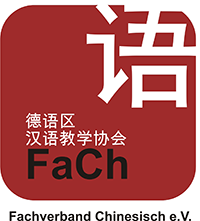Beurteilungskriterien für Sprachlernsoftware
Autor/innen
Teachers attditudes towards the massive push forward of the computer into the field of foreign language teaching depend on their emotional predispositions and different pedagpgic approaches to the phenomenon of computers necessary: Instead of rejecting the computer generally, one should assess it critically and welcome it as a helpful tool in fields where it is more effective than the traditional teaching methods. The computer should not be seen as the teacher`s competitor but as a means of supplementing and improving established teaching methods.
Use of electronic media in foreign language teaching is motivated by various considerations: 1, promotion of new possibilities (self-learn Center, Leipzig), 2, assessment of the different roles of human teachers and computers (State Language Institute, Bochum), 3, guided use (e-mail tandem project, Ruhr University, Bochum), 4, autonomous language learning (free choice of learning method), 5, consideration of learner types and individuality (Language Center, Potsdam University).
The large volume of recent c.a.l.l. software makes it necessary to choose the appropriate program fitting the needs of the teacher or student. Therefore, evaluation criteria must be established, because many of the programs are simply electronic versions of existing text books and do not make full use of the potential advantages of multimedia computers. The Federal State Institute for School and Education, Soest, has developed a catalog of criteria for the evaluation of c.a.l.l. software. These criteria focus on whether or not the hyperlinked structure of the program allows individual users to select their learning process.

Dieses Werk steht unter der Lizenz Creative Commons Namensnennung - Weitergabe unter gleichen Bedingungen 4.0 International.

Dieses Werk steht unter der Lizenz Creative Commons Namensnennung - Weitergabe unter gleichen Bedingungen 4.0 International.







